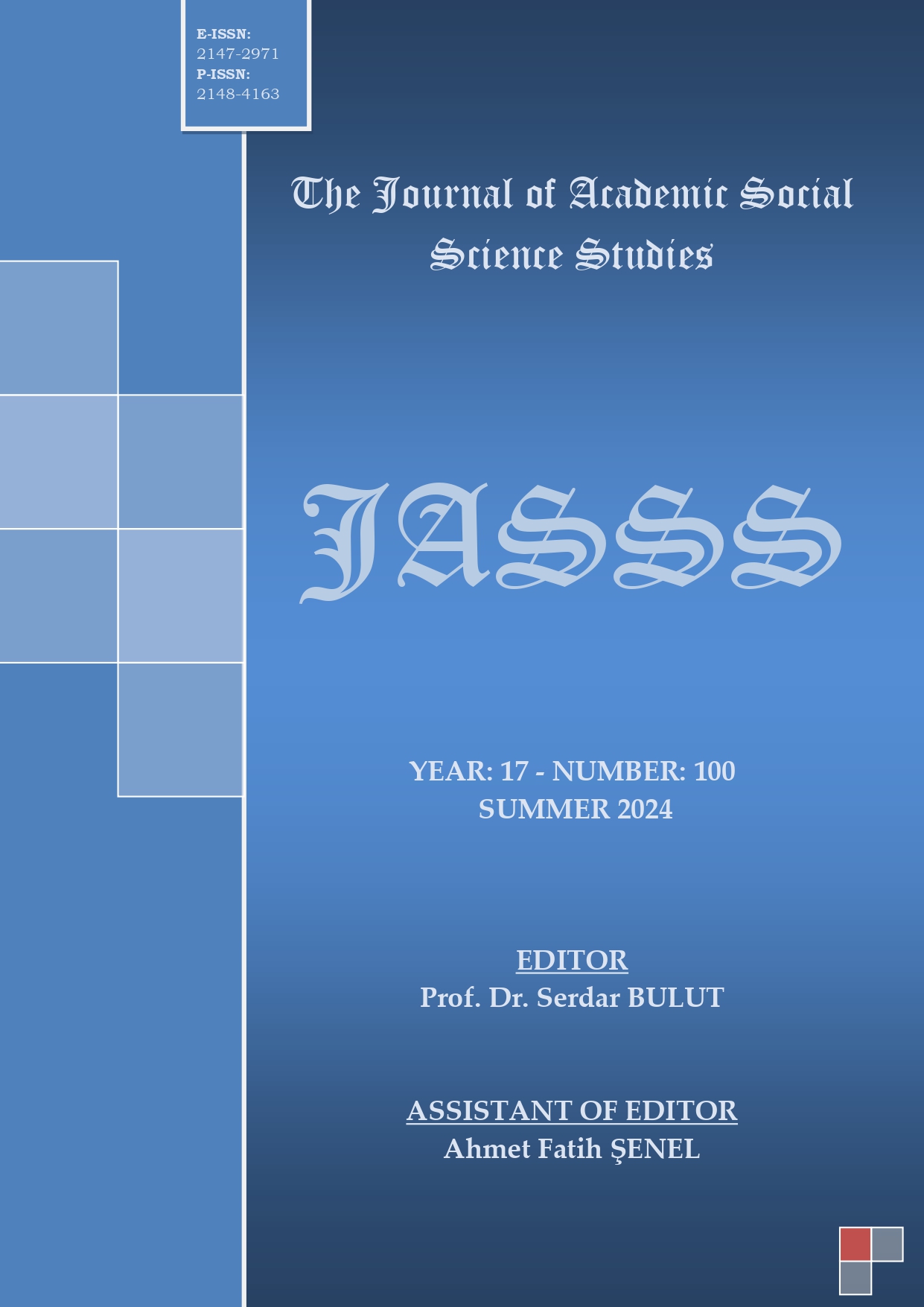Author :
Abstract
Bu araştırmanın amacı, ortaokullarda okul kültürünün oluşması ve geliştirilmesinde okul müdürlerinin rolünü incelemektir. Araştırmada nitel araştırma yöntemlerinden durum çalışması yöntemi kullanılmıştır. Veriler, yarı yapılandırılmış görüşme formu aracılığıyla elde edilmiştir. Araştırmanın çalışma grubu, amaçlı örnekleme yöntemi ile belirlenen 15 ortaokul müdüründen oluşmaktadır. Veriler içerik analizi yöntemi kullanılarak çözümlenmiştir. Araştırma bulguları incelendiğinde, okul kültürünün oluşturulması ve geliştirilmesinde ön plana çıkan unsurların; okul ruhu, etkili iletişim, iş birliği, ortak katılımı sağlayacak projelerin geliştirilmesi, sosyal aktiviteleri artırma, görev ve sorumluluk bilinci, özveri ve aidiyet olduğu belirlenmiştir. Okul müdürlerinin okul kültürünün oluşumu ve geliştirilmesinde; vizyon belirleme, örnek davranışlar sergileme, iletişim ve iletişim kültürü oluşturma, eğitim ve gelişim fırsatları sunma, etkili liderlik yapma, çatışma yönetimi, paydaş katılımını sağlama ve değerleri koruyarak sağlam bir okul kültürü oluşturma konularında önemli rolleri olduğu ifade edilebilir. Okul müdürünün en önemli görevi, bu kültürün oluşumunu teşvik etmek ve sürdürmek için liderlik yapmaktır. Bu bağlamda, okul müdürlerinin liderlik becerileri, iletişim stratejileri ve vizyoner yaklaşımları, okul kültürünün sağlam temeller üzerinde gelişmesine katkı sağlar. Araştırmanın sonuçları, okul müdürlerinin etkili liderlik ve yönetim stratejileri kullanarak okul kültürünü nasıl olumlu yönde şekillendirebileceklerini ortaya koymaktadır. Bu sonuçlar, eğitim politikaları ve uygulamaları için de önemli ipuçları sunmaktadır. Okul kültürünün güçlendirilmesi, okulların yanı sıra genel eğitim sisteminin kalitesinin yükselmesine katkıda bulunma potansiyeline sahiptir.
Keywords
Abstract
The aim of this study is to examine the role of school principals in the formation and development of school culture in secondary schools. Case study method, one of the qualitative research methods, was used in the study. Data were obtained through a semi-structured interview form. The study group of the research consists of 15 secondary school principals determined by purposeful sampling method. The data were analysed using content analysis method. When the findings of the research were analysed, it was determined that the prominent elements in the formation and development of school culture are school spirit, effective communication, cooperation, development of projects that will ensure common participation, increasing social activities, sense of duty and responsibility, dedication and belonging. It can be stated that school principals have important roles in the formation and development of school culture; determining vision, exhibiting exemplary behaviours, creating communication and communication culture, providing training and development opportunities, providing effective leadership, conflict management, ensuring stakeholder participation and creating a solid school culture by protecting values. The most important task of the school principal is to provide leadership to encourage and sustain the formation of this culture. In this context, principals' leadership skills, communication strategies and visionary approaches contribute to the development of school culture on solid foundations. The results of the study reveal how school principals can positively shape school culture by using effective leadership and management strategies. These results also provide important clues for educational policies and practices. Strengthening school culture has the potential to improve the quality of not only individual schools but also the education system in general.





